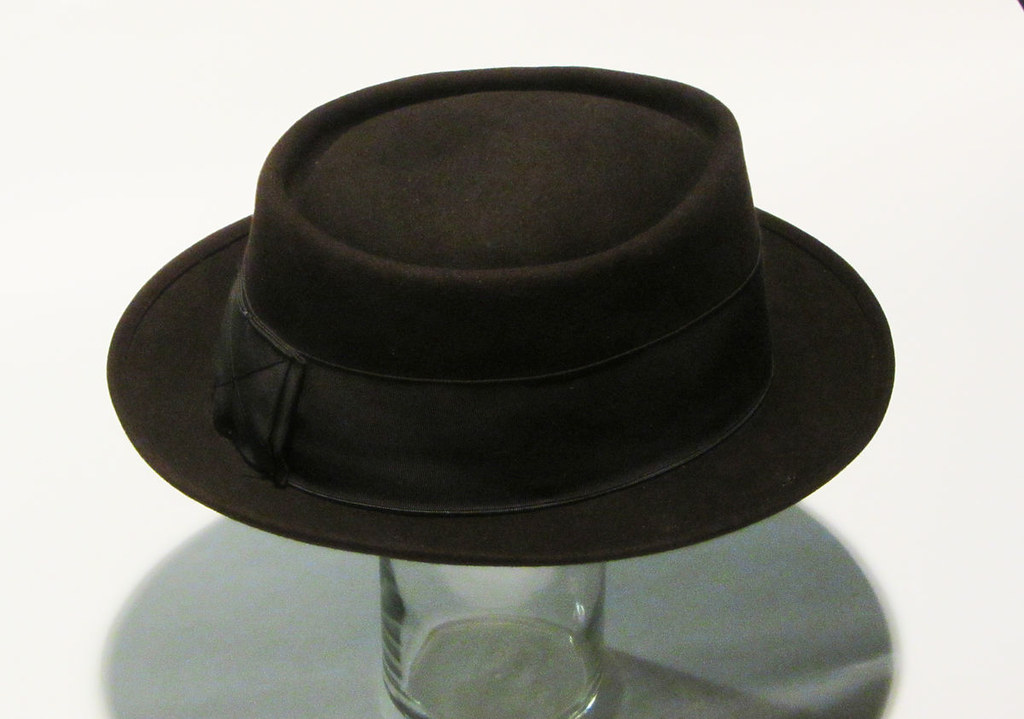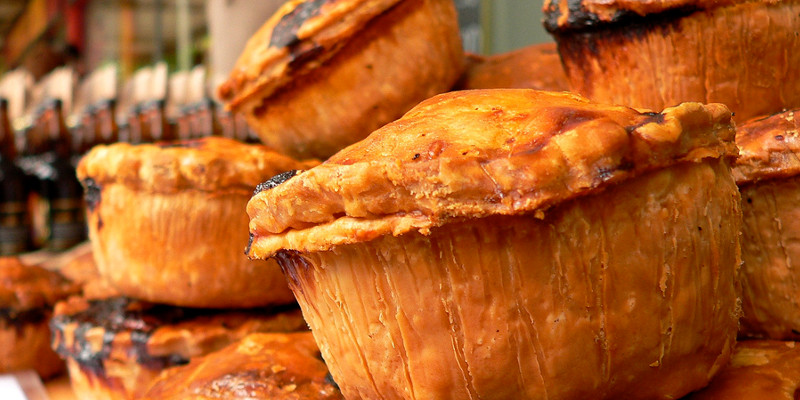In cockney rhyming slang pork pies, porkie pies, or just porkies, means lies.
But rest assured it’s no word of a lie that Brits love pork pies!
Pork pies are made with roughly chopped or minced pork and pork jelly sealed in a special pastry used for making savory pies called “hot water crust”.
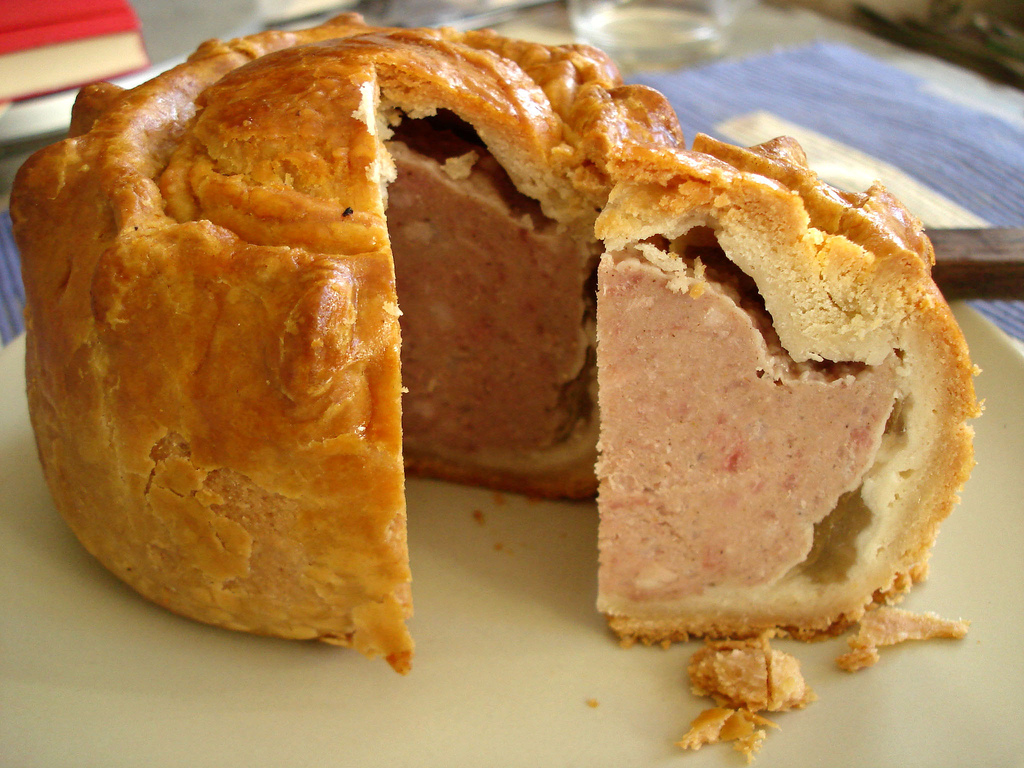
The jelly helps preserve the pie’s freshness by filling in air gaps within the pie, which is usually eaten cold.
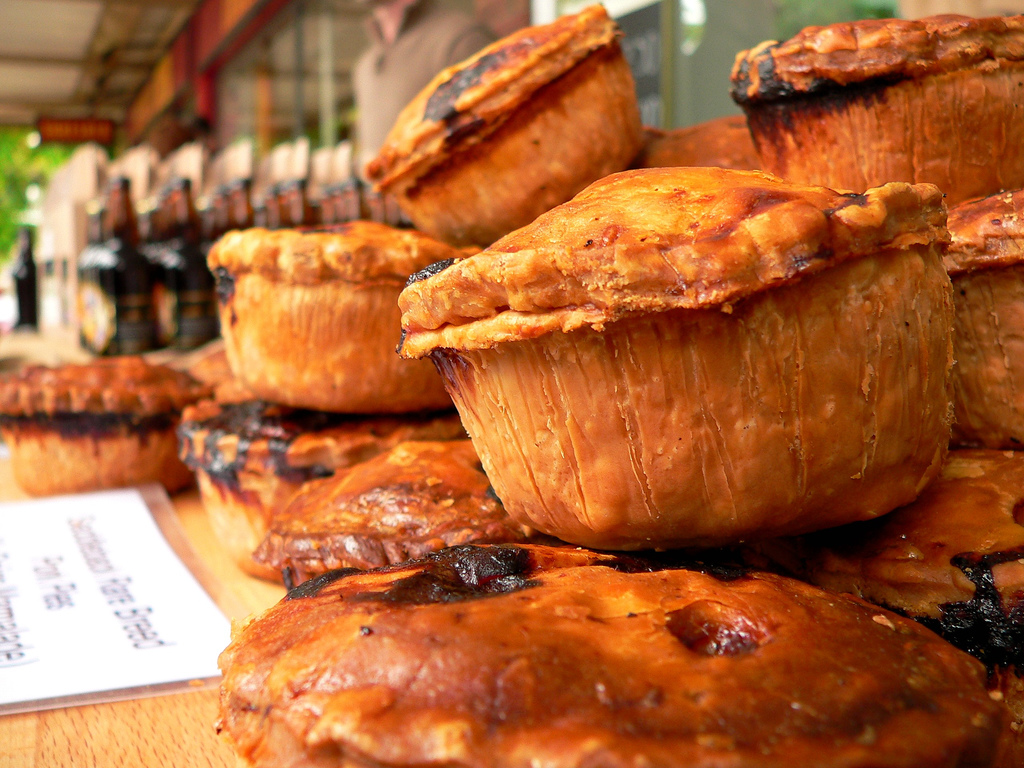
On a sunny day, it’s difficult to beat sitting at a bench in a pub garden and tucking into a ploughman’s lunch and a pint of ale, or a hearty sandwich with pork pie and Branston, or even pork pie on its own with Branston pickle and mustard. Oh yes!
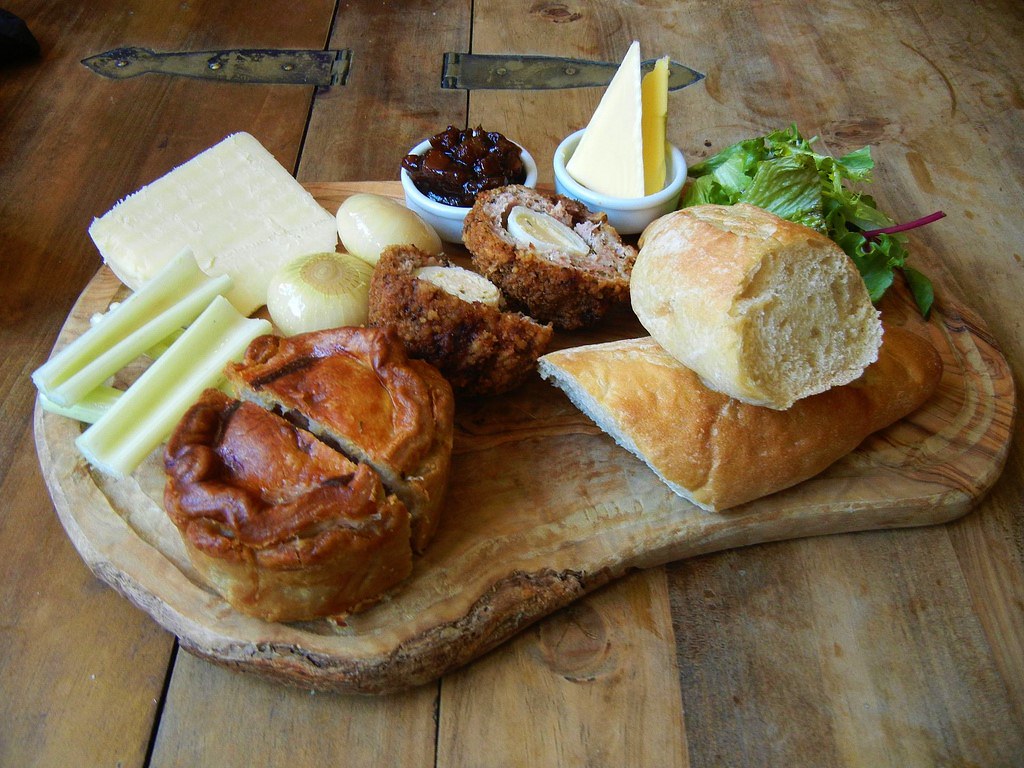
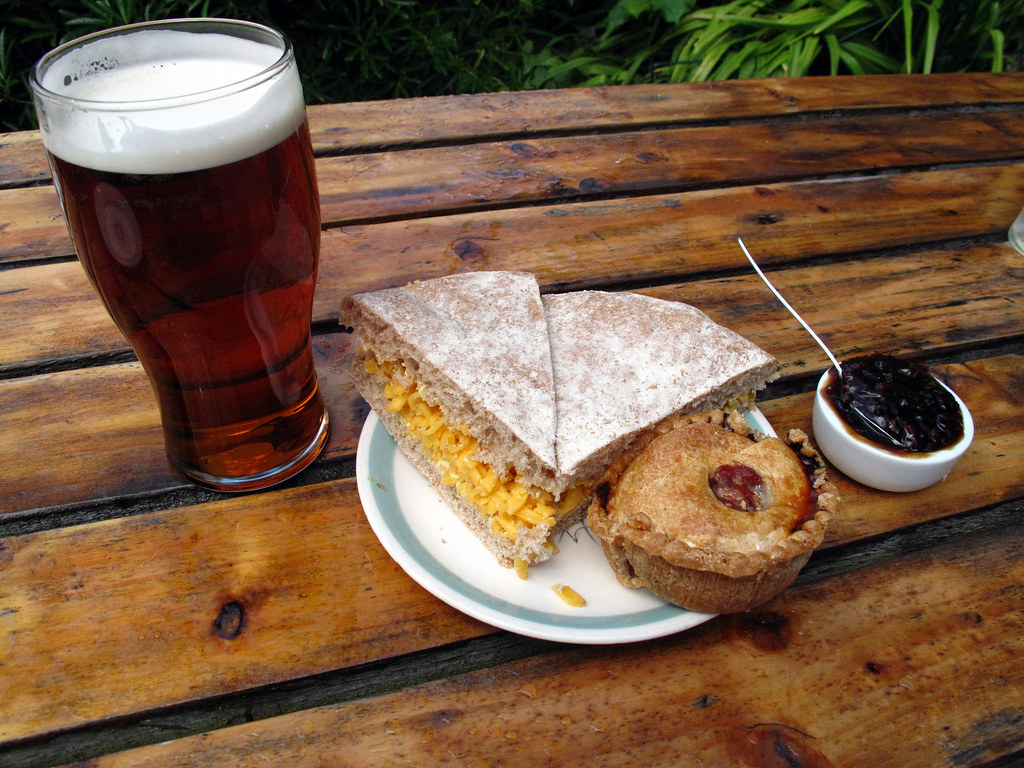
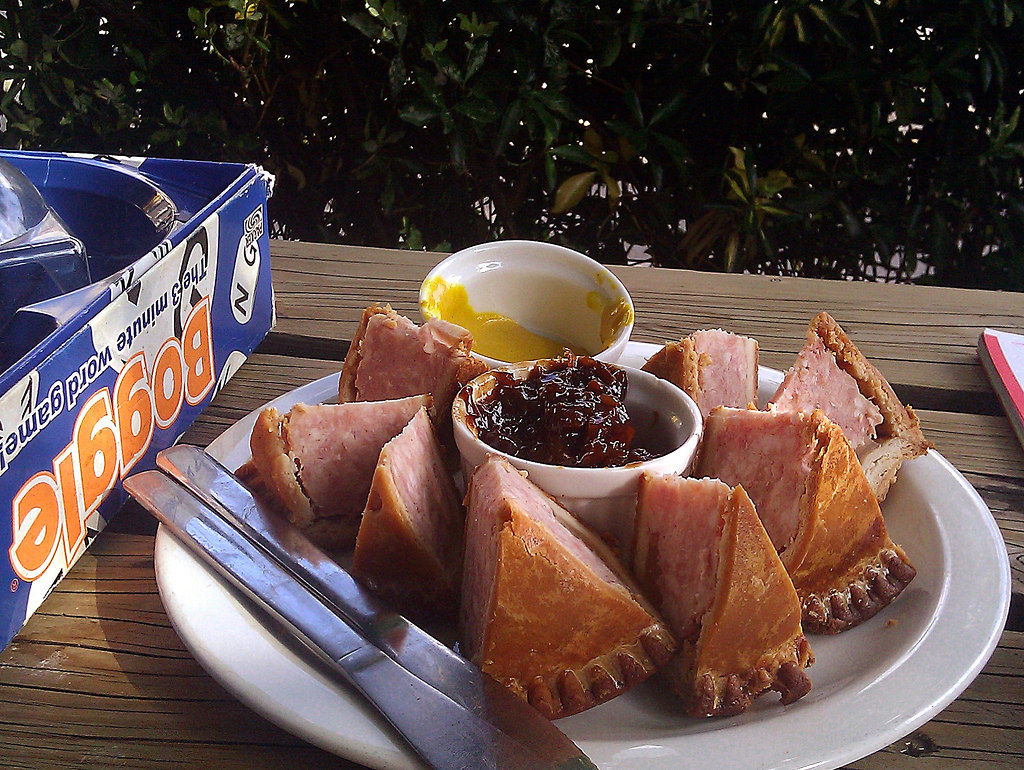
Pork pies can be found all over the UK under various brand names in supermarkets. But there is one place that is so special, it has its own signpost.
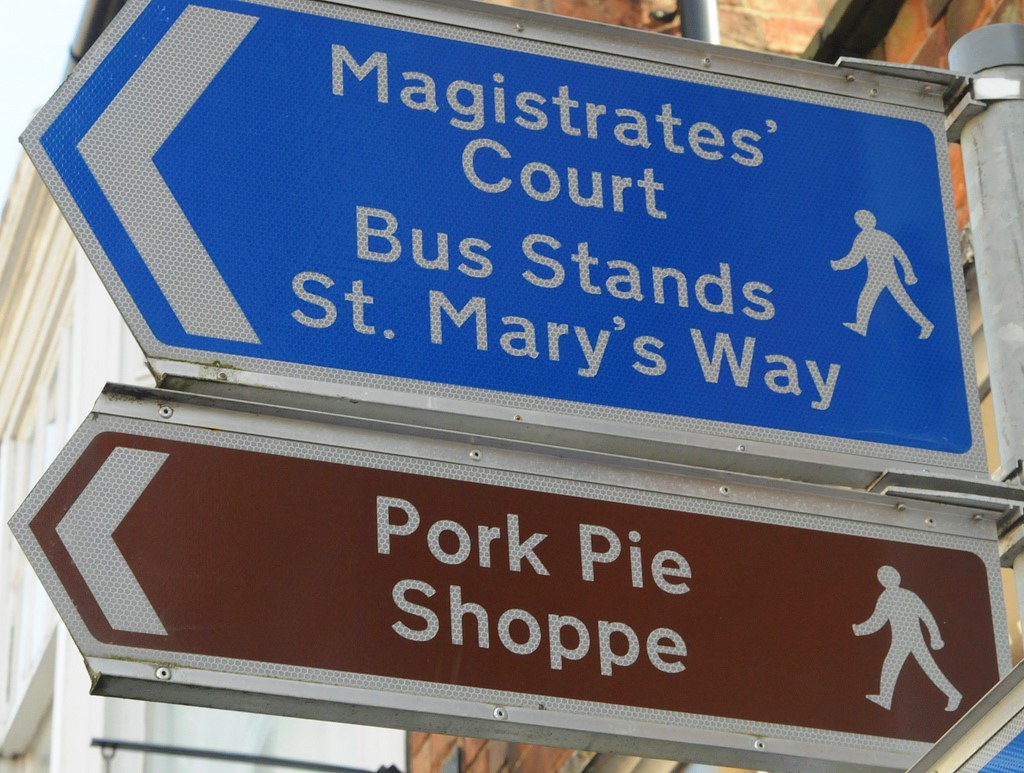
Melton Mowbray Pork Pies
There are pork pies and there are Melton Mowbray pork pies.
Named after the market town in Leicestershire, Melton pies have been handmade in Melton Mowbray since the late 18th century.
The uncured meat is chopped rather than minced and the crust is formed by hand to give an irregular shape. Unlike molded pies, the pies are cooked free-standing so that the sides bow outwards during baking.
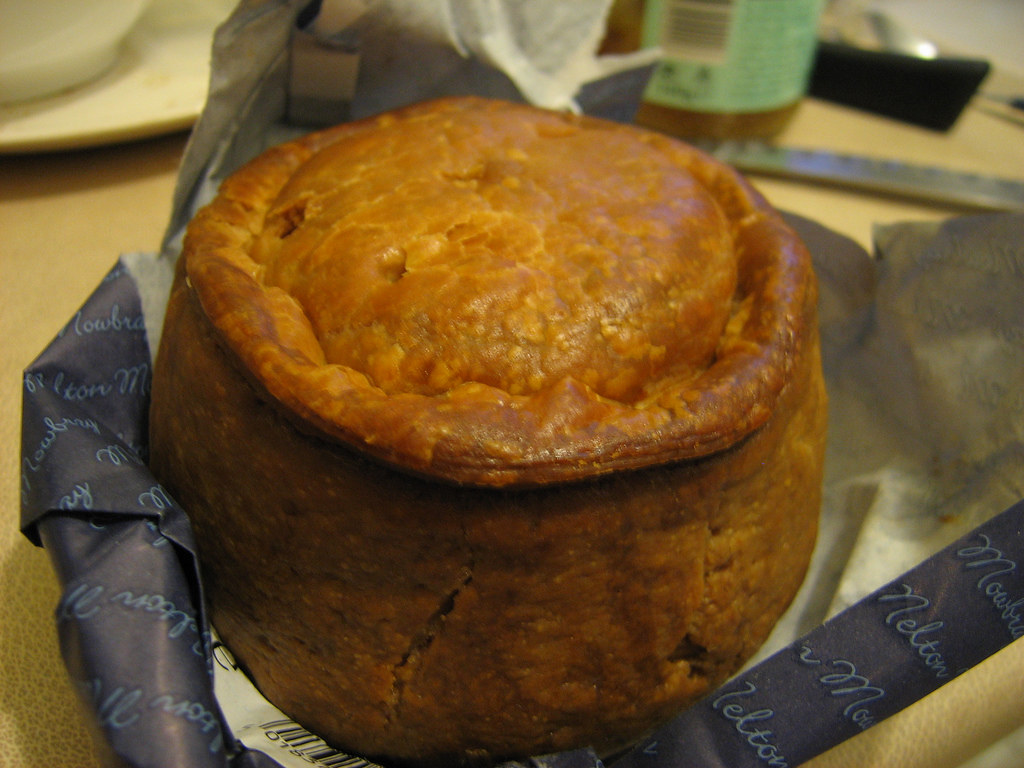
Melton Mowbray is a beautiful town surrounded by ancient monuments and hundreds of buildings with special historical interest.
The name “Mowbray” dates back to the Lords of the Manor of feudal Norman rule—namely Robert de Mowbray, described by English chronicler and Benedictine monk Orderic Vitalis as,
It’s a shame pork pies hadn’t been invented yet—they would have given him reason to smile more often.
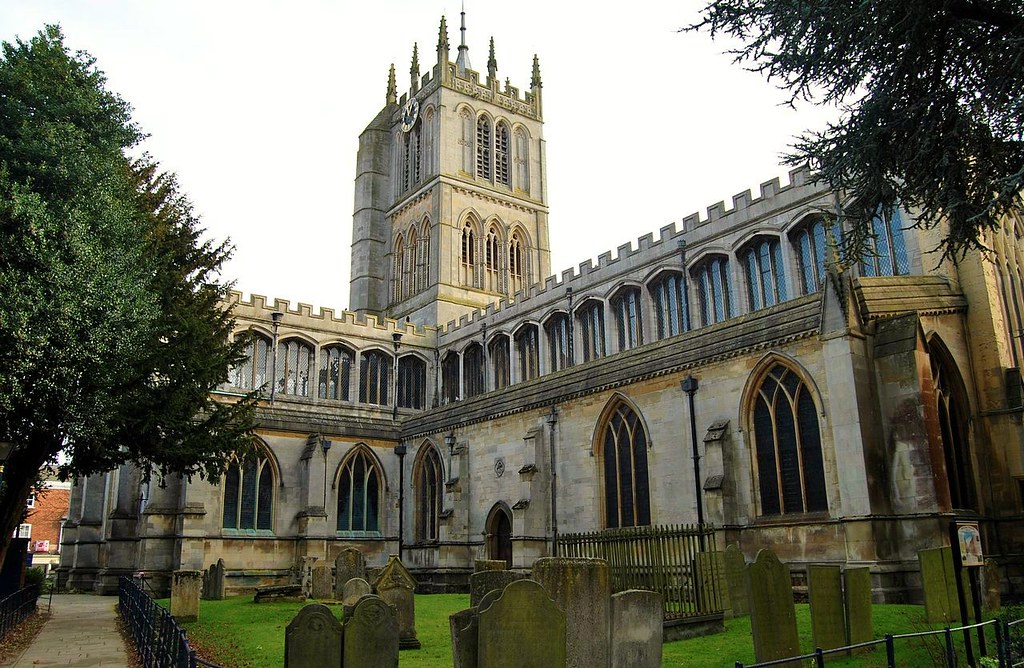
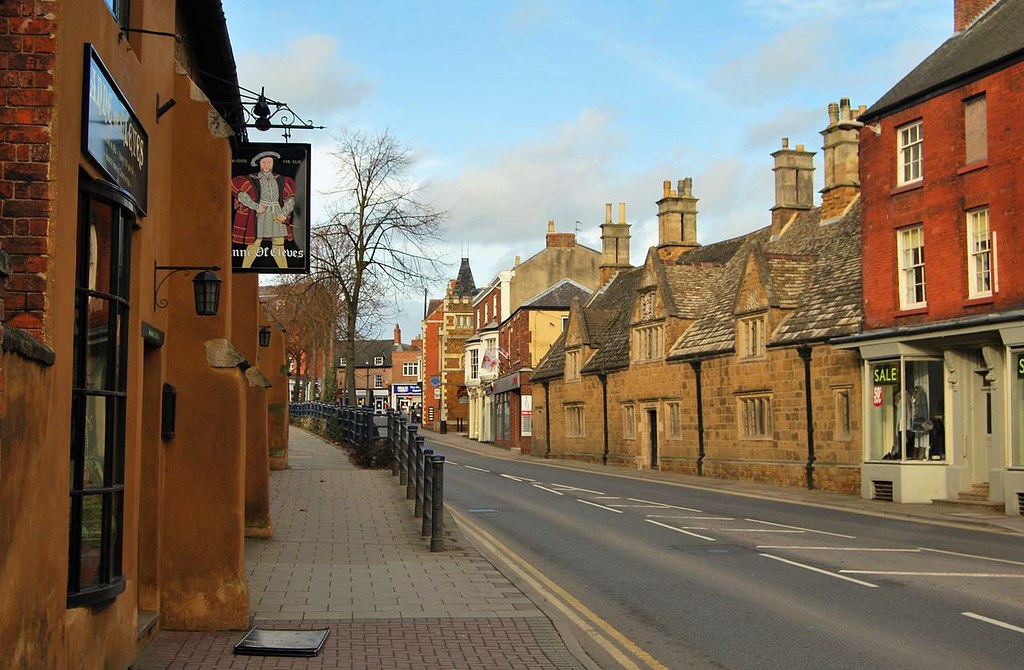
There lies an ode to the Melton pie in the 1961 book Eating and Drinking – An Anthology for Epicures
Strange pie that is almost a passion!
O passion immoral for pie!
Unknown are the ways that they fashion
Unknown and unseen of the eye.
The pie that is marbled and mottled,
The pie that digests with a sigh:
For all is not Bass that is bottled,
And all is not pork that is pie.Richard Le Gallienne.
In the town center sits Ye Olde Pork Pie Shoppe with the black and white fronted Half Moon pub next door.
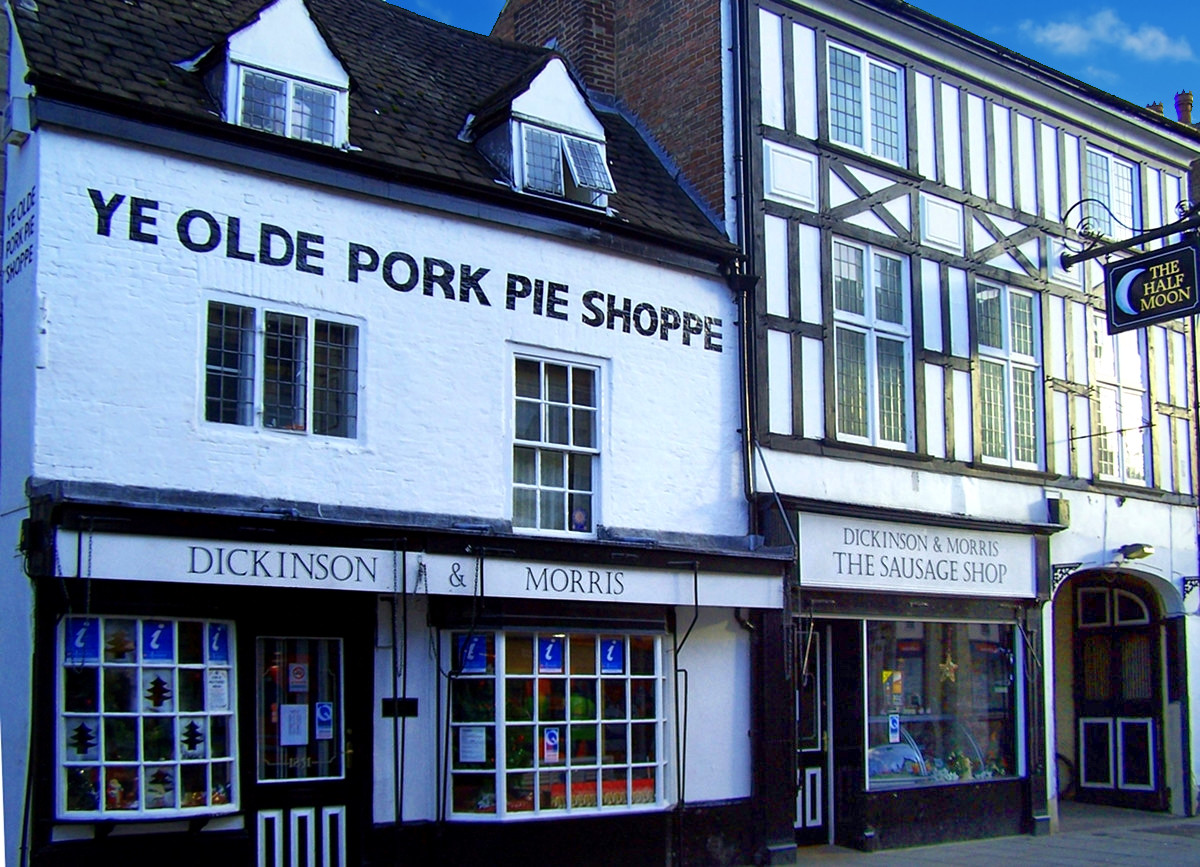
The shop is home to Dickinson & Morris who have been baking pork pies in Melton Mowbray since 1851.
Since 2009, Melton Mowbray pork pies have enjoyed PGI status (Protected Geographical Indication), which means that only pork pies made in a zone around Melton can use the Melton Mowbray name on their packaging.
A British tradition lives on!
Other pork pie shops worthy of note

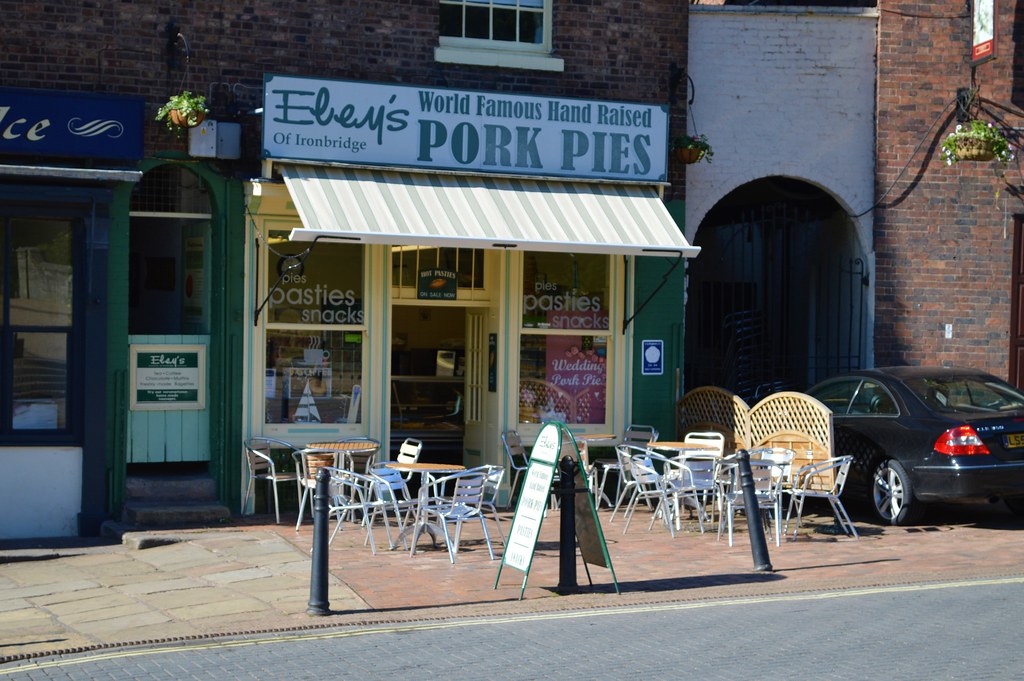
The Pork Pie Hat
The pork pie hat refers to several styles of hat popular since mid-19th century—and bearing an uncanny resemblance to a pork pie!
